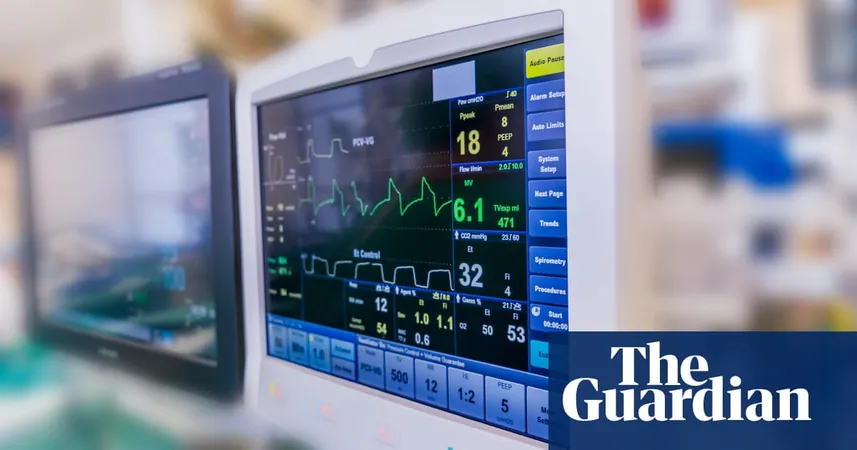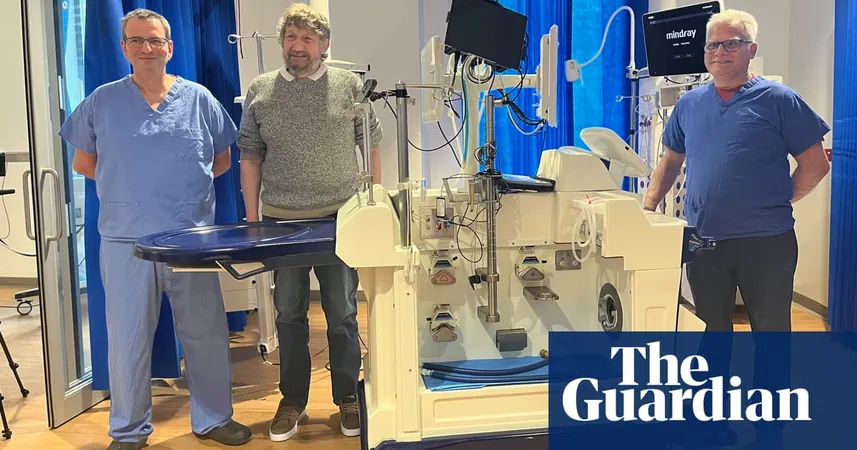
NHS Set to Launch Revolutionary AI Trial to Predict Type 2 Diabetes Risk Years in Advance
2024-12-23
Author: Amelia
Introduction
In an unprecedented move, the NHS in England is set to initiate a groundbreaking trial for a cutting-edge artificial intelligence (AI) tool designed to identify individuals at risk of type 2 diabetes up to 13 years before symptoms manifest. This initiative is not just a leap forward in diabetes prevention; it holds the potential to change the landscape of healthcare.
Global Diabetes Challenge
Globally, type 2 diabetes affects over 500 million people, and that number is projected to soar to 1 billion by 2050, making it a pressing public health concern. The condition is infamously linked to severe complications such as blindness, kidney failure, heart attacks, strokes, and amputations, affecting millions of lives. Traditionally, risk factors have included obesity, inactivity, and family history; however, many diagnosed individuals do not fit into these categories, illustrating the need for improved detection methods.
The AI Tool: Aire-DM
The AI tool, named AI-ECG Risk Estimation for Diabetes Mellitus (Aire-DM), works by analyzing electrocardiogram (ECG) readings gathered during standard heart scans. It detects subtle changes in heart rhythms undetectable to the human eye that could indicate risk for diabetes. This capability allows for timely interventions, enabling individuals to make lifestyle and dietary adjustments that could prevent the onset of the disease altogether.
Trial Implementation
Starting in 2025, the NHS will trial Aire-DM at Imperial College Healthcare NHS Trust and Chelsea and Westminster Hospital NHS Foundation Trust, making it the pioneer healthcare system to employ this technology. Should the trial prove successful, there are plans for broader implementation across England and potentially other countries within a few years.
Expert Insights
Dr. Libor Pastika, a clinical research training fellow at Imperial, emphasized the transformative potential of AI in healthcare. 'By harnessing AI to uncover hidden insights in ECG data, Aire-DM could lead to early identification of type 2 diabetes risk, representing a paradigm shift in preventive healthcare,' he stated.
Research and Development
The development of this tool was spearheaded by Dr. Fu Siong Ng and Dr. Arunashis Sau at Imperial, who harnessed a massive dataset of 1.2 million ECGs from hospital archives. They further validated their findings using data from the UK Biobank, which encompasses genetic and medical records from more than 500,000 participants. The research demonstrated that the tool accurately predicts diabetes risk for individuals of different ages, genders, ethnicities, and socioeconomic backgrounds about 70% of the time.
Enhanced Predictive Capabilities
The predictive capabilities can be enriched when AI-generated risk assessments are combined with additional genetic and clinical metrics, such as age and blood pressure. This synergy creates a more comprehensive risk profile for each patient, guiding proactive health measures.
Industry Support
Prof. Bryan Williams, Chief Scientific and Medical Officer of the British Heart Foundation, which financially supported the tool's development, remarked, 'This innovative research exemplifies how AI can analyze ECG data to uncover insights we previously could not access through routine health assessments. The potential to intervene early and prevent type 2 diabetes along with its severe complications is incredibly exciting.'
Conclusion
As the NHS embarks on this ambitious trial, the world watches closely. If successful, Aire-DM could revolutionize diabetes prevention, offering hope to millions and potentially reshaping the future of healthcare. The quest for early detection of type 2 diabetes may soon become a reality, sparking a new era of enhanced medical interventions and healthier lives.









 Brasil (PT)
Brasil (PT)
 Canada (EN)
Canada (EN)
 Chile (ES)
Chile (ES)
 España (ES)
España (ES)
 France (FR)
France (FR)
 Hong Kong (EN)
Hong Kong (EN)
 Italia (IT)
Italia (IT)
 日本 (JA)
日本 (JA)
 Magyarország (HU)
Magyarország (HU)
 Norge (NO)
Norge (NO)
 Polska (PL)
Polska (PL)
 Schweiz (DE)
Schweiz (DE)
 Singapore (EN)
Singapore (EN)
 Sverige (SV)
Sverige (SV)
 Suomi (FI)
Suomi (FI)
 Türkiye (TR)
Türkiye (TR)